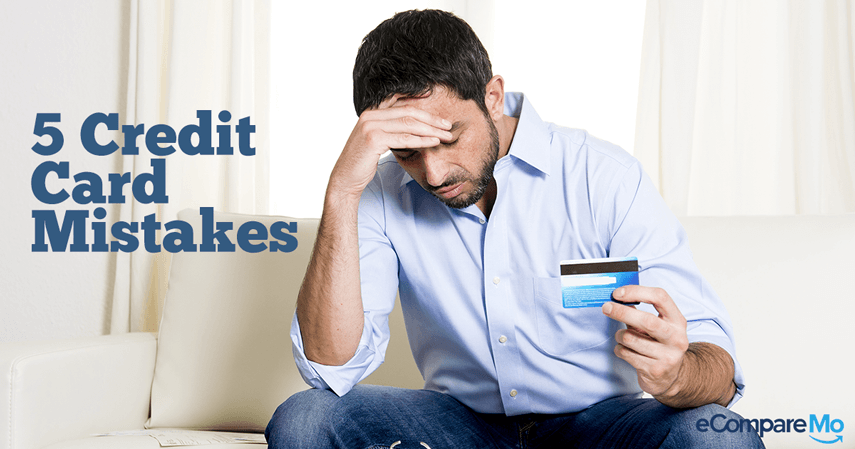Outsmart Your Credit Card By Avoiding These 5 Common Blunders
4 min readBeing a credit card holder without equipping yourself with enough discipline and knowledge is like jumping into the ocean without knowing how to swim.If you own more than one card, the more you owe it to yourself to effectively manage your finances. If you don’t want to find yourself sinking in the overwhelming sea of debt, these guidelines will keep you from committing the same mistakes over and over again.

1. Ignoring your billing statement.
Whether your credit card statement comes via mail or online, it’s always best to go through your bank statement. There are a lot of ways this could save you from financial blunders. For one, you can see if your credit card issuing bank updated their terms. You can also review your card spending habits for the last month, and make sure that there are no fraudulent transactions on your account. If there happens to be a product or service you purchased that you want to dispute, you can call your bank immediately and file for a chargeback in a timely manner.
To avoid being trapped in ballooning credit card bills, you have to practice the habit of monitoring your credit card expenses before you even decide to use it again. Being a credit card holder requires your utmost discipline. Otherwise, the consequences of your mindless spending will come back to haunt you sooner or later.
Read: (Your Credit Card Debt Is Ballooning! What Can You Do?)
2. Paying only the minimum amount stated on your monthly billing statement.
The fact that you only pay the minimum on your monthly credit card bill is already a red flag. By paying your bills late, you’re putting yourself on the losing end because you’re only incurring much higher charges. You’ll end up paying more than what you purchased due to the interest rate that the bank will charge for your next billing statement. It also increases the amount of time you will pay for your credit card.
You can avoid this by committing to make fixed payments in a month. Adding more to your monthly payments will prove to be a huge advantage because you will be able to pay your credit card debts at a shorter period of time, and you will also gain good credit record.
Read: (What Are Reward Credit Cards And What Makes Them Different From Cashback Credit Cards?)
3. Using your credit card for a cash advance.
You’re better off applying for a loan instead of using your credit card cash advance for emergencies. Most bank terms put higher interest rates than your normal purchases. What’s more, there’s also a transaction fee charged to your account that is either 2 to 5 percent of the amount you borrowed. Most credit card issuers have no grace periods for cash advances, which means you get charged with interests immediately. If all else fails, make sure you pay the cash you borrowed from your credit card as soon as you can, to avoid huge credit card fees.
4. Maxing out your credit card.
Maxing out your credit limit puts you at risk for more fees and penalty charges. Financial advisers suggest that you keep your credit card balance below 10% of your credit limit so it’s still manageable on your part to pay for it.
One way to avoid maxing out your credit card is to know how much your balance is before you use it for another transaction. If you normally use your credit card for everyday purchases like grocery shopping, gasoline, or restaurant meals, you might want to consider using your debit card instead so you avoid paying more than what you actually spent. Credit card promos can be very tempting, but always make sure you will be able to afford to pay for your expenses before you avail of them.
5. Not knowing your credit card terms.
Don’t be one of the people who dive head-first into using their credit card as soon as they get it. Like any other commitment, it is best to know what you’re getting into before you start. Some things to consider are your card issuer’s late payment fees, cash advance charges, and the fixed monthly interest rate, among others. The best credit card deals are the ones that offer low-interest rates and shopping rewards. Remember that your credit card issuer can change their terms anytime, and they normally notify their credit card holders via mail or through your monthly billing statement, so watch out for their updates.
The rule is to never be complacent when it comes to using a credit card. Your card issuer has the power within their terms to charge you fees if you missed to follow even the smallest detail. Arm yourself with knowledge, and start building the discipline of never spending more than what you can actually pay.
